[ad_1]
It’s no secret that Asian People have reworked the American palate over the previous century. Per the Nationwide Restaurant Affiliation, 19% of all eating places within the U.S. are Asian-owned—the most important share amongst minority teams. Prior to now decade, this affect over meals has prolonged far past Chinese language takeout, Thai eating places, and sushi bars.
In 2015, matcha insanity swept the nation. The next 12 months, ube—the subtly nutty and candy Filipino purple yam—went viral. Right now, you’ll find gochujang-flavored potato chips (impressed by the Korean pink chili paste), calamansi (Philippine lime) glowing water, and lychee exhausting seltzer in grocery aisles. It then shouldn’t come as a shock that Asian People are influencing one more meals and beverage class: craft beer.
The existence of Asian American craft breweries isn’t a current improvement. In 1994, retired engineer Oscar Wong launched Highland Brewing Firm in Asheville, North Carolina. It has been dubbed the town’s “unique craft brewery” for being the primary authorized brewery to function since Prohibition. Since then, Highland Brewing has change into a beloved family title, opening the doorways for different Asian American brewers.
Nonetheless, in line with a 2021 report from the Brewers Affiliation, Asian craft brewery possession is just at 2% (with white possession at 93.5%, and Hispanic possession far behind at second place with 2.2%). Nonetheless, whereas numbers are nonetheless rising, this new wave of Asian American brewers is making an influence in different large methods. They’re taking issues a step additional by placing their heritage on the coronary heart of their craft.
Basis Earlier than Taste
Taste is highly effective. It elicits robust reminiscences, particularly of childhood and rising up. For these within the diaspora, it additionally gives a way of connection to the motherland. However, because the previous Voltaire saying goes, “With nice energy comes nice duty.” It’s straightforward for the usage of now-mainstream flavors similar to matcha, Thai tea, and ube to be misconstrued as fashionable or gimmicky. That’s why the house owners of Fortunate Envelope Brewing, Raymond Kwan and Barry Chan, wished to start out easy and construct up from stable floor.
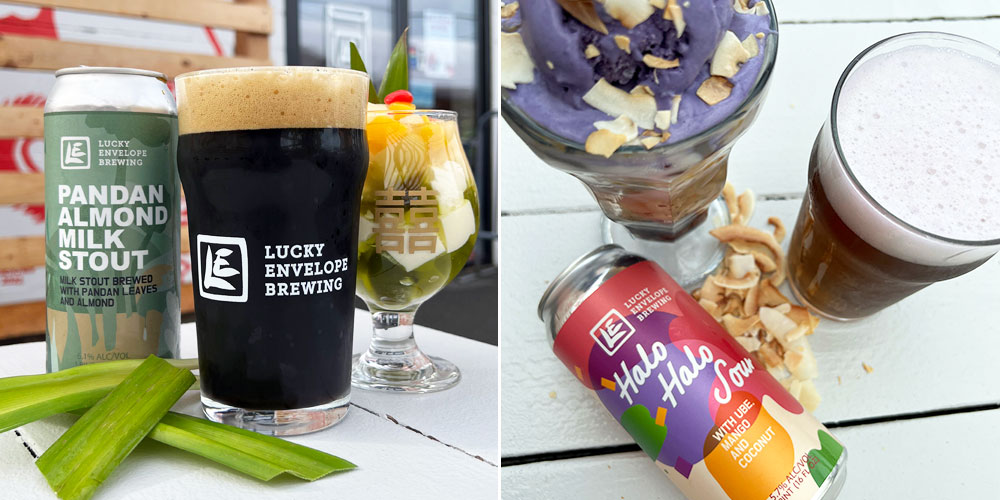
“All of the beers want a robust basis, or else you don’t have something to face on,” explains Chan, a former structural engineer. “We all the time need to be sure that our base beers are high quality. After that, we’ve got a license to have a bit little bit of enjoyable.”
After they first opened in Seattle, Washington in 2015, they began with 5 beers on faucet and just one was a culturally impressed brew: a Belgian tripel infused with the citrus punch of Thai lime leaves and the refreshing perfume of lemongrass. “We didn’t need to pigeonhole ourselves as ‘the Asian brewery,’” says Chan. Issues shifted after their beers started successful awards. They bought a bronze medal on the 2015 Nice American Beer Pageant for his or her Helles Lager, and a gold for his or her American IPA on the 2016 Washington Beer Awards.
The success of their extra conventional brews inspired them to launch flavors that talk to their experiences as the youngsters of Chinese language immigrants, their travels in Asia, and extra. Chan continues, “[Those wins were] what gave us quite a lot of that confidence to sort of transfer ahead.” A number of the flavors which have graced their taproom embrace a porter brewed with vanilla and fragrant five-spice (a spice combination of star anise, cloves, cinnamon, Sichuan peppercorns, and fennel seeds predominant in Chinese language delicacies), a crisp IPA flavored with flaked rice, a zingy ginger peach tea bitter ale, and a wealthy ube latte cream stout.
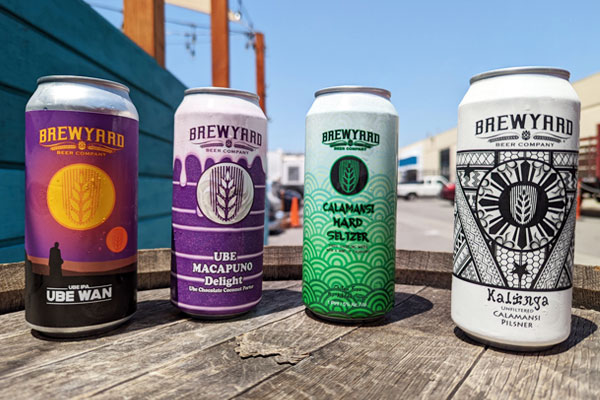
Second-generation Asian People Sherwin Antonio and Kirk Nishikawa had an identical mind set after they started Brewyard Beer Firm in Glendale, California, additionally in 2015. The microbrewery makes a speciality of Filipino- and Japanese-inspired craft beers, drawing from the founders’ cultural backgrounds. However they made positive they laid the groundwork.
“We simply wished to show that we might simply make good beers first, after which simply sort of simply naturally began experimenting with various things,” says Antonio. They started by specializing in numerous lager kinds, with the aim of making drinks that have been flavorful, but crisp and clear. Right now, their lineup features a Koshihikari rice lager and a matcha black lager, but in addition an ube coconut porter, a calamansi Pilsner, a mango kettle bitter, and plenty of others.
Unapologetically Asian
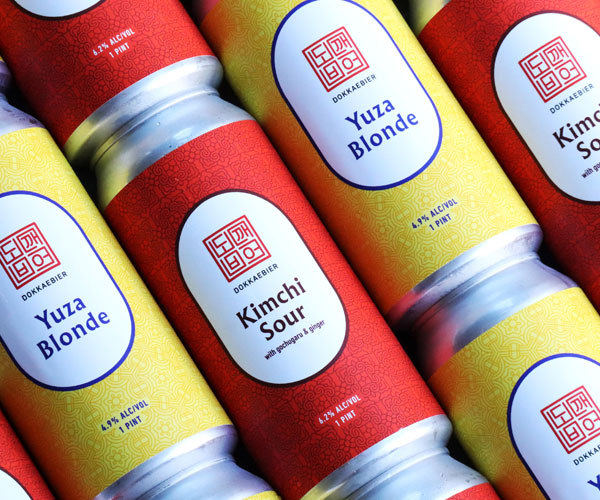
It’s the sooner new-wave breweries like Fortunate Envelope and Brewyard that opened the floodgates for daring taste. Whereas they slowly labored as much as releasing unconventional beers, Dokkaebier opened in Oakland, California, in 2020 and got here out with Asian components a-blazing. Their best-selling beer is their funky Kimchi Bitter, mimicking the spicy, pungent, fermented vegetable aspect dish that is among the most defining meals of Korean culinary custom. The beer is made with gochugaru (Korean sun-dried chili peppers), ginger, and a lactic tradition from two-year-old selfmade kimchi—refreshing and tart with an fragrant end.
“Bringing my heritage and what I do know, what I’ve expertise with and placing that right into a product that I make, I felt prefer it was a pure transfer,” says Korean American proprietor Youngwon Lee. “We’re unapologetically Asian American by way of what we do, with the title, the design, the flavors that we create.”
Azadi Brewing Firm was additionally based in 2020 by Bhavik Modi and his pal Gator Schrand. Their mission is to introduce the Chicago craft brewing scene to distinctive beers impressed by India’s cultural and culinary heritage. They usually go to nice lengths to make use of components from India at any time when attainable for his or her small-batch beers.
For his or her Gir Kesar Mango IPA, they import mangoes grown in western India. The cardamom for his or her Kavi Golden Ale comes from the motherland, too. Additionally they work straight with a woman-owned farm within the Himalayas for lemongrass for a beer referred to as Cochin, a saison brewed with lemongrass tea.
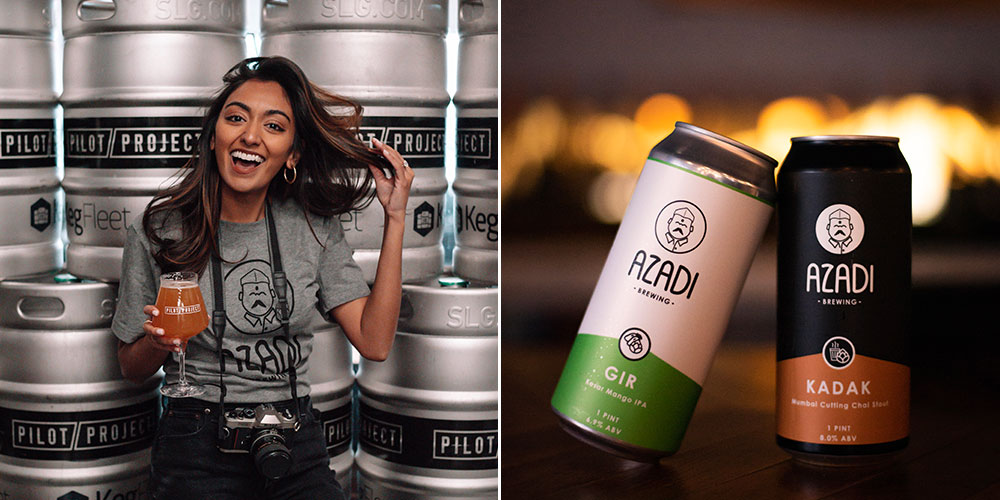
Neighborhood on the Core
Azadi Brewing’s determination to go the additional mile and supply components from India goes past wanting their high quality and taste. It’s additionally a matter of group. Modi—who was born in India and raised within the Midwest—causes, “In the event you’re going to be an authentically Indian model, it is best to work with individuals in India and assist Indian small enterprise house owners and farmers and the group there.”
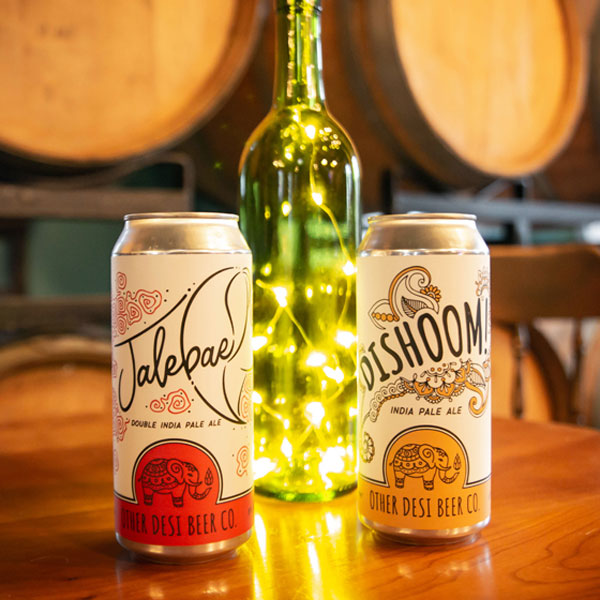
Ravi Patel, who based Different Desi Beer Co. in New Haven, Connecticut in 2019, chooses to assist varied charities, together with these nearer to residence. A portion of the gross sales from Different Desi’s 3 Ranis (which means three queens in Hindi) brew—a pink guava and hibiscus bitter—goes to the Breast Most cancers Alliance for breast most cancers analysis. Yearly, 5 % of the corporate’s earnings go to a distinct charity of Patel’s selecting.
As cliche as it could sound, group is on the heart of all the pieces, particularly for this new wave of Asian American brewers. This pertains not simply to the communities that they’re straight part of, but in addition those they attain with their beer. That’s why Patel makes positive that the labels on his beers are as informative as they’re fantastically designed, to coach individuals outdoors of the Indian American group about his tradition and heritage.
“With my pals, we’re grabbing one thing to drink, or often grabbing a beer, having a dialog with one another,” says Patel. “And I really feel like that’s the right time to have this kind of beer…to have a dialog piece.”
CraftBeer.com is totally devoted to small and unbiased U.S. breweries. We’re printed by the Brewers Affiliation, the not-for-profit commerce group devoted to selling and defending America’s small and unbiased craft brewers. Tales and opinions shared on CraftBeer.com don’t suggest endorsement by or positions taken by the Brewers Affiliation or its members.
[ad_2]



